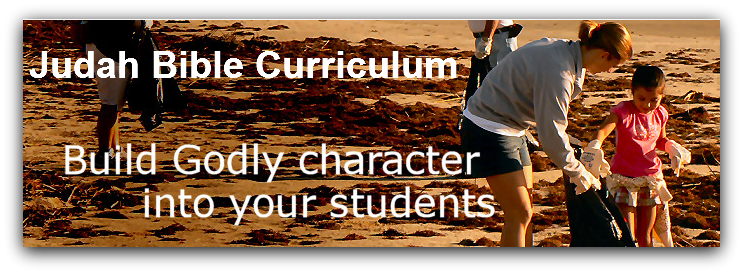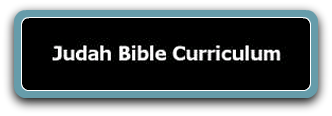Ever started reading through the Bible with a whole new filter that opens up all kinds of new, wonderful messages in each story? I remember when I began using the “tree” filter. The Bible begins with two trees in the Garden and ends with the Tree of Life in Revelation – trees have a special significance throughout the text. And when I read with a “tree” filter, every time a tree or tree component is mentioned (branches, door posts, etc.) there is an amazing light bulb going off in my mind as I explore the symbolism and meaning.
I’ve recently been listening to a series of teacher-training lectures introducing the “governance” filter. And once again, it amazes me how many insights can be gleaned from Scripture with a filter – how pervasive the rulership, kingdom, governance theme is from beginning to end.
Introducing…

Synopsis:
What is the Judah Bible Curriculum?
- A Principle Approach curriculum for Bible class.
- Develop a comprehensive knowledge of the Bible.
- Build strong, Godly character in your children.
- Study the Bible together.
- Study the hand of God in the lives of individuals and nations.
- For homeschool, Christian school, Sunday school.
- Teach your children living Biblical principles to guide their lives.
- Apply God’s word personally in every area of life.
- The Bible is the textbook.
You get:
- Judah Bible Curriculum K-12 Manual
- Elementary Notebook Ideas booklet
- Eight-lecture Teacher Training Seminar
Recommended Age: K-12
Price: The Judah Bible Curriculum Pack is $74 (including s&h) for hard copy; $44 for online delivery
For More Info/To Purchase: http://judahbible.com/
For More Reviews: TOS Crew
For this particular product, I think whether or not you like the product will depend greatly on what your expectations are to begin with. So we’re going to summarize what the product is not, and what it is – from Mom’s perspective.
What It is Not:
- It is not a step-by-step curriculum. No fill-in-the-blank printables, no daily reading, no list of activities or crafts to do every day. It does not do the work, the preparation, the teaching, for you. This can be both liberating and scary. Expect to spend several weeks (months?) preparing before you implement this.
- It is not eye-candy. Or ear-candy. In this day and age of graphic designers and professional audio equipment, this may be a little off-setting for you. The manual and notebook examples feel home-baked; the audio is from actual lectures with audience participation and reference to visuals. (Some visuals are included in the manual, but tough to use if you are listening during walks or on commutes.)
What It Is:
- It is a structured approach to
spontaneousSpirit-led teaching and learning. That’s the best way I can describe this. The Bible is the text, the parents are the teachers, the students are learning to analyze and internalize the text. The Judah Bible Curriculum is merely providing an outline – a framework – of how this can be done. It gives a schedule – what Bible text to focus on when – for each of grades K-12. Five themes will walk your child through the entire Bible each year, with a slightly different emphasis each year for six years. You’ll repeat the emphasis every six years – so twice over a 12-year program. - It is a methodology. The Judah Bible Curriculum gives a suggested methodology – notebooking – as well as a set of four key sheets that can be used by students to analyze the text. The same notebook is used each year and can serve as a resource for the student in years to come. Completed examples of notebook pages are included to give you ideas, but other than the key sheets, you’re on your own to come up with notebook pages. Here is an example of what Esmé did the first week… gathered from various places on the web.
- It is teacher training. The eight audio lectures not only elaborate on the methodology of the curriculum, they are meant to get the teacher thinking through the “governance” filter or paradigm. There are lectures for the five themes of the Judah Bible Curriculum, so the teacher can listen through a lecture just prior to starting that theme. It IS suggested that you listen to all eight lectures before beginning the program – part of my “weeks” of prep time… There are a lot of interesting points to be taken from it: for instance – the types of governance God specifically ordained in scripture: self, parental/family (training up children), church (provisional – caring for poor), and civil (protection of human life).
- It uses The Principle Approach. I could spend hours describing this, but I’ll just point you to principleapproach.org… While I have a few twinges of discomfort when American history is brought into the picture (my perspective of US origins may be different than most conservative American Christians), I do appreciate and agree with most of the governance discussion in the lectures. I must admit to tripping up over the “self-governance” terminology, which rubbed me the wrong way with the word “self” – but I had no problem with the author’s application of this term.
- It is a 12+ year curriculum. You can jump in at any time, but for maximum benefit, you’ll use it for 12 years. In the early years, your student will spend more time on “fun stuff” – coloring, etc. but will build up each year. If you have just a young student, as I do, you’ll not even scratch the surface of the program in the beginning.
- It’s a family (or classroom) program. If you have multiple students, you’ll want to have all of them using the same Bible curriculum – as it involves discussion and dialogue.
- It can apply to all aspects of history. The key sheets? If your student gets into the mode of analyzing Bible stories this way, it can easily be applied to analyzing all of history as well. Key people, events, institutions, and documents – can be found in all of history.
- It emphasizes diligence and best work. Entries aren’t supposed to make it into the notebook unless they are complete and the student’s best work. Essays (which are discussed at length)are supposed to be re-written if needed. I’m still trying to figure out the balance with my 5yo (who has perfectionism issues), but I appreciate this emphasis on character development.
This is a program that, while I can’t begin to implement much of it now, I’m still glad to have discovered at this stage of Esmé’s education. I love the combination of freedom and structure. We won’t always use the “governance” filter the author promotes, but I did find it an enlightening one, helpful for character development and outlining personal responsibility.
---------------
Disclaimer: Thanks to Judah Bible Curriculum for providing a digital download of their curriculum in exchange for an unbiased review, and to TOS Crew for coordinating the review. All opinions are our own.






















.jpg)
0 comments:
Post a Comment